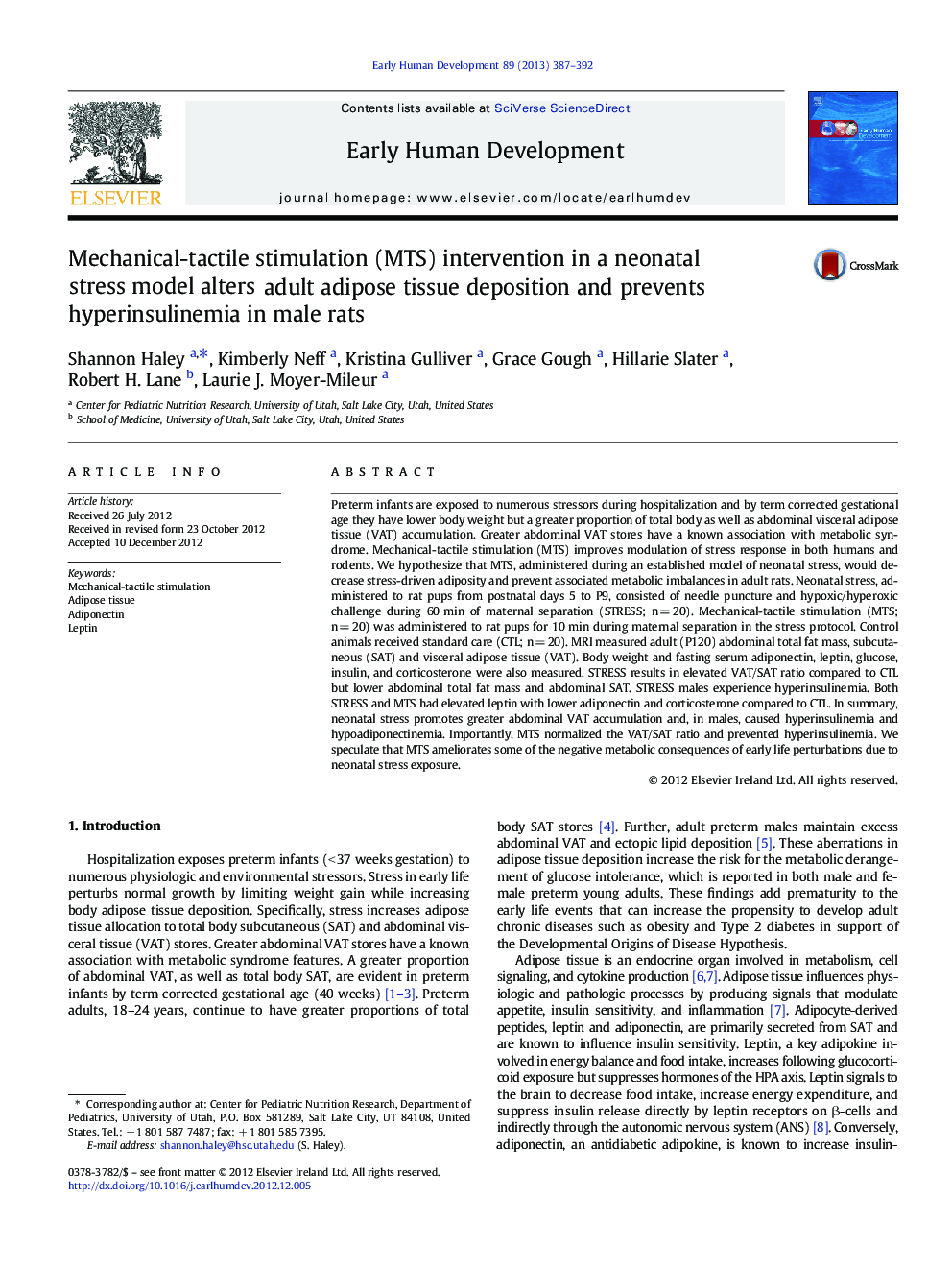| Article ID | Journal | Published Year | Pages | File Type |
|---|---|---|---|---|
| 3916684 | Early Human Development | 2013 | 6 Pages |
Preterm infants are exposed to numerous stressors during hospitalization and by term corrected gestational age they have lower body weight but a greater proportion of total body as well as abdominal visceral adipose tissue (VAT) accumulation. Greater abdominal VAT stores have a known association with metabolic syndrome. Mechanical-tactile stimulation (MTS) improves modulation of stress response in both humans and rodents. We hypothesize that MTS, administered during an established model of neonatal stress, would decrease stress-driven adiposity and prevent associated metabolic imbalances in adult rats. Neonatal stress, administered to rat pups from postnatal days 5 to P9, consisted of needle puncture and hypoxic/hyperoxic challenge during 60 min of maternal separation (STRESS; n = 20). Mechanical-tactile stimulation (MTS; n = 20) was administered to rat pups for 10 min during maternal separation in the stress protocol. Control animals received standard care (CTL; n = 20). MRI measured adult (P120) abdominal total fat mass, subcutaneous (SAT) and visceral adipose tissue (VAT). Body weight and fasting serum adiponectin, leptin, glucose, insulin, and corticosterone were also measured. STRESS results in elevated VAT/SAT ratio compared to CTL but lower abdominal total fat mass and abdominal SAT. STRESS males experience hyperinsulinemia. Both STRESS and MTS had elevated leptin with lower adiponectin and corticosterone compared to CTL. In summary, neonatal stress promotes greater abdominal VAT accumulation and, in males, caused hyperinsulinemia and hypoadiponectinemia. Importantly, MTS normalized the VAT/SAT ratio and prevented hyperinsulinemia. We speculate that MTS ameliorates some of the negative metabolic consequences of early life perturbations due to neonatal stress exposure.
